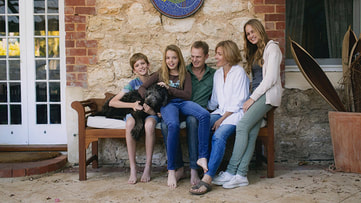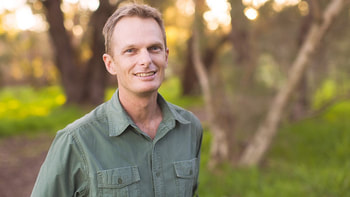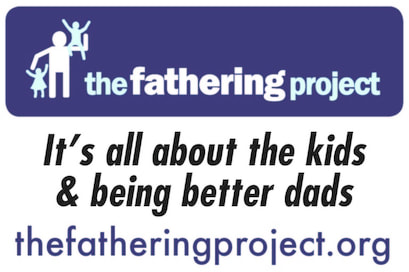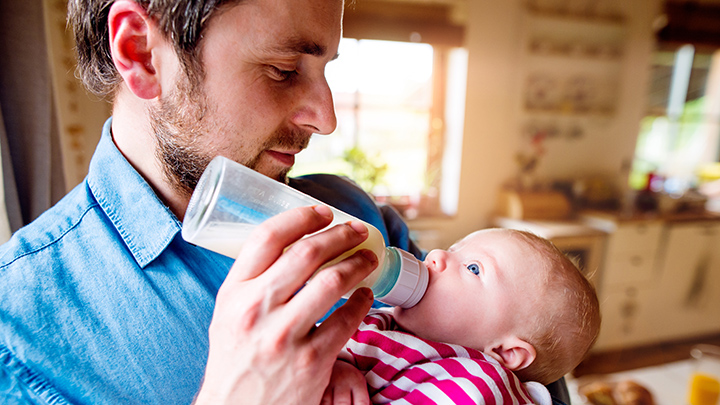|
Article Published in Curtin University E-newsletter | Faculty of Health Sciences | October 2017 21st century fatherhood can be a challenging, rewarding and complicated business. Changing expectations of how fathers participate in family life mean that many dads are more intimately involved with their children than previous generations, and new research is demonstrating just how important the father-child connection is to family functioning and wellbeing. In his project, Paternal and Maternal Reflective Functioning in the Western Australian Peel Child Health Study, Dr Dawson Cooke, whose position at Curtin is funded by The Fathering Project, assessed how well families understood both their babies’ and their own mental and emotional states, and how the father-baby relationship was related to family functioning. “I am particularly interested in the very early stages of the father-infant relationship because I believe if a good quality relationship is established from the start of a child’s life, this provides a resilient foundation for the father’s involvement throughout their lifespan,” Dr Cooke said. “We assessed the parent capacity to consider mental states in the self and the infant, which is called ‘Reflective Functioning’ (RF) or ‘Mentalizing’. It’s all about thoughts, feelings and intentions, and how these influence behaviours. “What we found was that the quality of family functioning was related to the fathers’ RF more than the mothers’ RF. Also, the quality of the mother-infant relationship was not predictive of the quality of their partner’s relationship with the infant – these two relationships were independent. “[The fathers’] RF was also strongly related to men’s identification with the fathering role, more father-time with the child on weekends, and father’s parenting self-efficacy.”  Dr Dawson Cooke and his family. Dr Dawson Cooke and his family. Dr Cooke, who is a Postdoctoral Fellow in the School of Nursing, Midwifery and Paramedicine, said the study results also indicated that fathers and mothers thought about, and interacted with, their babies in different ways and, in line with previous research, women seemed more adept at gauging the emotional and mental states of their children. “The study showed that fathers indicated more prementalizing than mothers – meaning they scored higher in a measure of non-reflective behaviours or attitudes in the relationship. This finding is consistent with research that shows women to have greater capacity to think in terms of mental states, and men to have lower awareness of emotions and less capacity to describe them compared to women,” he said. “Results in this study indicated some possible reasons for these differences – the amount of time spent with the infant, and identification with the parenting role, were both factors that might explain why mothers have some advantage in this area.”  Dr Dawson Cooke Dr Dawson Cooke Historically, mothers have taken on an active parenting and nurturing role, and there have always been cultural expectations that motherhood comes naturally to women. There is now a better understanding of the challenges many mothers undergo, such as isolation, limited family support and pre or post-natal depression and anxiety, and there are services to support mothers at all stages of parenting. Paradoxically, there are limited services for fathers who may be experiencing similar difficulties. “Many parents, mothers and fathers, have times of doubting themselves and fearing they are not good enough. At these times, it is important to seek support from friends, family or services such as helplines, your child health nurse or maybe counselling,” Dr Cooke said. “Most early parenting services are designed to support mothers, and are staffed exclusively by women so, although these services might be excellent in many ways, they are not easily accessed by men and sometimes might not accommodate men very well. “There are many great resources online, such as raisingchildren.net.au. Ngalais a great local service in Western Australia, which supports mums and dads in the early years of parenting, and The Fathering Project specifically aims to support fathering, and has a popular program for dads with primary school aged children. The Fathering Project is hosting The Big Campout at Domain Stadium on 14 October for Dads looking for a way to connect with their child and have some fun together.”  Dr Dawson Cooke's position at Curtin is funded by The Fathering Project. Dr Dawson Cooke's position at Curtin is funded by The Fathering Project. Research indicates that having an involved, loving and engaged father can significantly impact a child’s developmental, emotional, educational and social outcomes. Dr Cooke notes that, while there is more awareness about the importance of the father-child relationship, and increased expectations for dads to develop healthy connections with their children, one of the greatest barriers to this is personal experience. Many men may not have had good relationships with their own fathers, and are uncertain about how to nurture their children. This can impact on the quality of the family relationships they develop. “Fathers sometimes have a tough time relating well with their infant – for all the same reasons as why mothers struggle at times in early parenting. Becoming a parent is a wonderful experience, but can also be terrifying, difficult and fraught with problems. Many men have not had great role models of how to be an involved father, especially with a very young child. It may even be counter-cultural for them to be a hands-on dad in those first months,” Dr Cooke said. “Working in partnership with the child’s mother is one important key to being an involved dad. Another is having the courage to have a go – not fear doing it the ‘wrong way’ and being prepared to ask for help if you need it.” While Dr Cooke encourages fathers to work collaboratively with their partners on shared parenting, he cautions against the often-familiar scenario of the mother taking on far too much of the parenting load, while the father’s confidence in his parenting ability steadily decreases. “Being a parent is a huge responsibility and, like any responsibility, it is difficult to take it up fully if one isn’t given opportunity or feels like it isn’t theirs to take. Many mums find this a difficult transition in the first months of parenting,” he said. “Many dads only take it up partially, due to personal and social reasons, which is a tragic loss for them and their children…If mum becomes the expert parent in the early months and years, it is difficult for dad to catch up and take up his role with confidence.”
0 Comments
Your comment will be posted after it is approved.
Leave a Reply. |
Archives
May 2019
Categories
All
|


 RSS Feed
RSS Feed